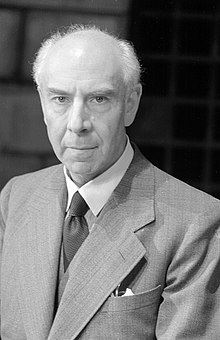Robert Heger
Robert Heger (19 August 1886 – 14 January 1978) was a German conductor and composer from Strasbourg, Alsace-Lorraine.

He studied at the Conservatory of Strasbourg, under Franz Stockhausen, then in Zurich under Lothar Kempter, and finally in Munich under Max von Schillings. After early conducting engagements in Strasbourg he made his debut at Ulm in 1908 or 1909. He held appointments in Barmen (1909), at the Vienna Volksoper (1911), and at Nuremberg (1913), where he also conducted Philharmonic concerts. He progressed to Munich and then to Berlin (1933-1950), after which he returned again to Munich.
In 1937 Heger joined the NSDAP.
Heger conducted at the Royal Opera House, Covent Garden, from 1925 to 1935, and again with his Munich company in 1953, when he gave the first London performance of Richard Strauss's opera Capriccio. He died in Munich.
Compositions
Heger composed four operas. His works include:
- The Jewess of Worms (melodrama)
- Pianoforte trio, op 14
- Songs
- A Festival at Haverslev (3-act opera, prod. Nuremberg 1919)
- Hero and Leander (symphonic drama, full orchestra) op. 12
- Violin concerto in D major op. 16
- Symphony in D minor
- A Song of Peace (choral work for soli, chorus, orchestra and organ)
Sources
- A. Eaglefield-Hull, A Dictionary of Modern Music and Musicians (Dent, London 1924)
- H. Rosenthal and J. Warrack, Concise Oxford Dictionary of Opera (OUP, London 1974 printing)
